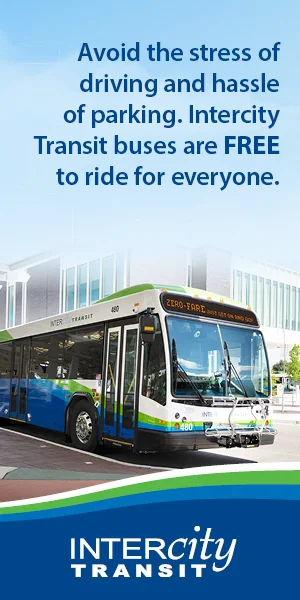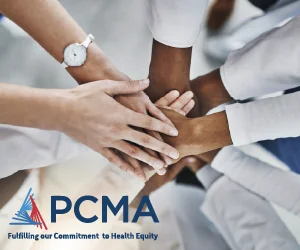This week on Inside Olympia, host Austin Jenkins interviews local citizens and elected officials who are concerned about polarization and lack of civility in politics, and are working to change that. Snohomish County Council members Jared Mead, a Democrat, and Nate Nehring, a Republican, have started a nonprofit called “Building Bridges” that seeks to inject civility into the political debate, and get their message out to school kids. Sean O’Brien, who works on clean energy in his day job, is chair of the Tri-Cities Civility Caucus, which is working to promote civil political discourse.
Jared Mead and Nate Nehring got together after the events of Jan. 6, 2021, at the U.S. Capitol, and penned an op-ed that appeared in The Herald of Everett, talking about the need to reach across the partisan aisle. They received a lot of positive feedback, but also initially pushback from their local political parties. Since then they’ve spoken at and scheduled public events at many schools and civic organizations, culminating in a civics summit this past December in Everett.
Mead and Nehring often find themselves voting against each other on the Snohomish County Council. Their political differences are deeply held. Yet, they say they’ve forged a relationship where, when they find themselves on different sides of a hot, polarizing political issue, they’ll talk to each other, hear each other out, and try to understand what the other side is saying.
Recent state and national polls show about 9 in 10 people are concerned about the tone of politics and the future of our democracy. One in four has stopped talking to a close friend or relative over politics. Their “Building Bridges” nonprofit includes a pledge people can take, to commit to a more respectful way of talking politics. This includes what they call “really simple things that we sometimes don’t remember in the heat of the moment.”
At the same time, they stress that civility is not about giving up your beliefs. It’s about how you talk with others about those beliefs.
Mead and Nehring say even with political opponents you can find areas where you do agree. Mead stresses the importance of “being curious” – if you find yourself at political odds with another person, rather than writing them off, ask them why? Why do they believe what they believe? Nehring talks about the value of when you’re yelled at, not yelling back, a way to lower the temperature of a political argument.
Sean O’Brien formerly worked as a congressional staffer in the other Washington. He said a 2017 congressional baseball shooting started a movement in Congress in which two members decided to purposefully visit each other’s districts, understand their different concerns, and talk about bipartisanship. The Tri-Cities effort builds on that model.
While politics are polarized, according to O’Brien, even in Washington D.C. “so much of the real story is not being told”: bipartisan work is happening, he says, but it doesn’t sell social media clicks, so people aren’t aware of it.
One of his goals is how, with social media, to “monetize the good” to combat those who are benefiting from or monetizing polarization on social media.
His advice for people in what promises to be a hot election year? “Turn off your social media, turn off your TV, talk to your neighbor.” Focus on local civic institutions, “including your front porch.”

